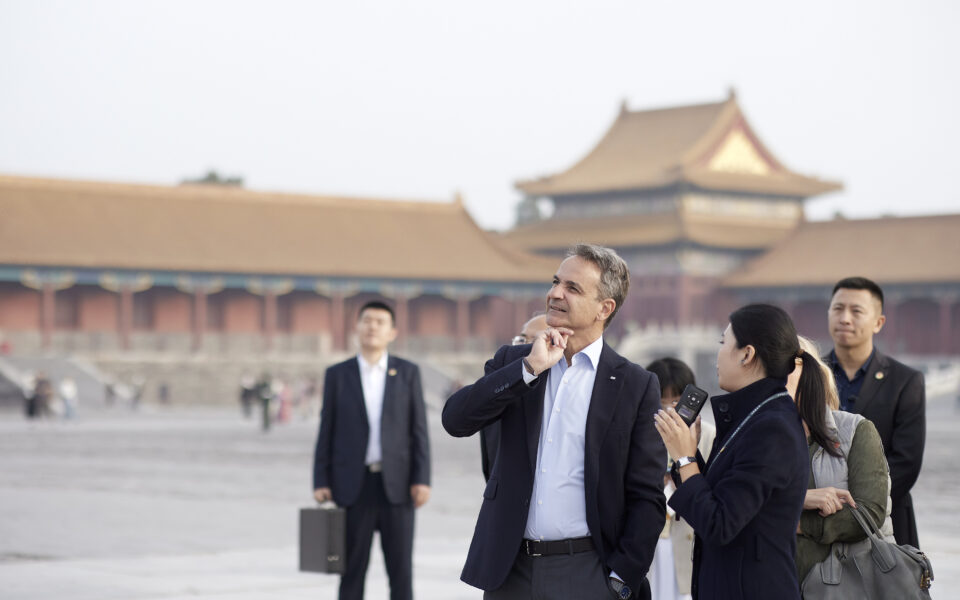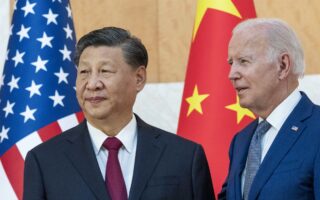Whither Sino-Greek relations?

Four years after his last trip to China in November 2019, Prime Minister Kyriakos Mitsotakis is visiting again. A lot has changed in the interim. The Covid-19 pandemic dramatically influenced relations between the West and China. Both sides are now in a delicate process of reducing dependencies – to the extent this is feasible in a globalized world. More importantly, Sino-American antagonism is increasing, and the tensions naturally affect the way the EU approaches China.
In spite of the new conditions, both the USA and the EU are engaged in candid dialogue with China. This year has already witnessed several significant visits to the country. From the American side, Secretary of State Antony Blinken, Treasury Secretary Janet Yellen, Commerce Secretary Gina Raimondo, Henry Kissinger and John Kerry are among the figures who have met the Chinese leadership. From the European side, President of the European Commission Ursula von der Leyen, President of France Emmanuel Macron and Prime Minister of Spain Pedro Sanchez did so. German Chancellor Olaf Scholz had already traveled to China in November 2022.
Dialogue is being intensified as long as world problems increase. Both the conflict in Ukraine and the Israel-Hamas war are generating a level of disorder that requires a minimum degree of international cooperation. While the European leadership has already asked the Chinese administration to use its leverage and hopefully bring hostilities in Ukraine to an end, Washington expects Beijing to contribute to some stability in the Middle East. Recently, after President Joe Biden received Foreign Minister Wang Yi at the White House, the former “underscored that the USA and China must work together to address global challenges” – as the official American announcement reads. In a similar vein, China participated a few days ago in the UK summit on artificial intelligence safety and signed a joint declaration about potential dangers along with the USA, the EU and others.
Within this framework, the visit of Prime Minister Mitsotakis to Beijing follows the general Western trend and is taking place at a crucial juncture. Greece is not expected to play a leading role in international issues settled by big powers but employs a balanced foreign and economic policy. In this manner, it envisages improving its relations with China by simultaneously respecting American geopolitical considerations and following European guidelines.
COSCO’s investment in the port of Piraeus remains highly successful in spite of delays in several projects. Ongoing discussions concentrate on the future of construction activities as well as on the impact European green regulations might have on container traffic. Also, trade is at the center of attention. According to Eurostat data, Greek exports to China fell to €408 million in 2022 from €800 million in 2019, the year before the outbreak of the Covid pandemic. On the contrary, Greek imports from China amounted to €7.9 billion last year from €4.5 billion in 2019. In tandem with finding a way to boost its exports, the Greek government is interested in welcoming Chinese tourists again in 2024, and benefiting from COSCO’s plan to strengthen the cruise sector in Piraeus.
Last but not least, Greece values China’s rising geopolitical power. Being geographically located in a turbulent neighborhood, Athens makes calculations which include the careful study of Chinese foreign policy in the Eastern Mediterranean.
Dr George N. Tzogopoulos is a lecturer at the European Institute of Nice (Cife), and a fellow at the Hellenic Foundation for European and Foreign Policy (ELIAMEP) and the Begin Sadat Center for Strategic Studies (BESA).





